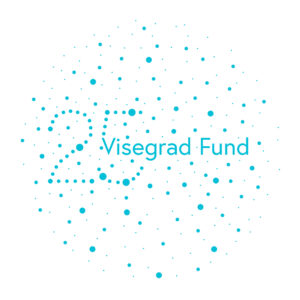V4 - Housing
Central and Eastern European Center for Household Finance
Visegrad 4 Housing & Retirement challenges

In V4 countries, and in the greater Central and Eastern European (CEE) region, the overexposure to real estate in retirees’ wealth portfolios, with 70-80% of household wealth locked in property, contributes to supply shortages and deteriorating housing conditions (OECD, 2022), and sustainability concerns. Energy efficiency and housing quality are critical in V4 countries with extreme weather conditions. From the elderly perspective, there is often an acute liquidity problem where they are asset-rich and cash-poor, unable to convert housing assets into regular income. This situation is partly rooted in historical distrust in financial systems with limited capital market participation as a legacy of communist-era financial markets (Vaskövi & Jászfi, 2023; Bunce, 2012). The sudden shift to market economies in the 1990s, combined with economic instability and banking crises, further eroded public confidence in financial institutions, resulting in a strong preference for cash holdings and real estate investment (Beckmann & Mare, 2017) and under-diversification in their retirement portfolios (Koch & Scheiber, 2022).
The project aims to address critical issues related to the aging population, including rising poverty rates, declining housing quality, housing supply shortages, environmental inefficiencies, and energy inefficiency in housing. Additionally, it seeks to tackle the growing inequality in housing affordability. While the younger generation, people at the beginning of their careers, and young families struggle to enter the housing market, the elderly often remain in large, energy-inefficient properties that are often unaffordable, further exacerbating housing affordability and quality issues.
Together, the project’s multidisciplinary teams aim to provide a comparative analysis of the current housing market situation across the V4 countries and suggest alternative policy approaches from tax perspectives and by offering new financial products.
The project aims to address issues and propose policy suggestions for the following stakeholders:
- For the Elderly: The project aims to unlock passive wealth locked up in housing assets, creating alternative or supplementary pension income. This supports self-reliance and alleviates elderly poverty concerns without putting further pressure on public financing.
- For Young Individuals and Families: The project seeks to increase the available housing stock by unlocking hidden, underutilized properties. It also aims to improve the quality of housing stock by partially redistributing existing assets from the elderly to the younger generation, who are more motivated to implement upgrades and environmentally efficient heating and cooling services.
- For the Environment: The project aims to reduce pollution by decreasing inefficient heating practices, such as wood burning, and improving energy efficiency. This will lead to enhanced climate-resilient housing
- For the Government: The project aims to propose new taxes (or modification in taxes), and subsidies for the government, taking into account their impact on retirement, real estate investment and quality, and the need to balance the budget.
Thanks to our grant support we scheduled two workshops to present and discuss comparative market analysis and policy recommendation with stakeholders.
The project is co-financed by the governments of Czechia, Hungary, Poland and Slovakia through Visegrad Grants from the International Visegrad Fund. The mission of the fund is to advance ideas for sustainable regional cooperation in Central Europe.


The Central and Eastern European Center for Household Finance (CEEC-HF), hosted at Corvinus University of Budapest (CUB), is spearheaded by the Macrofinance department researcher team: Dr. Zsuzsa R. Huszár (head), Dr. Erzsébet T. Varga, Dr. Ágnes Vaskövi, and Dr. Zsuzsanna Tamásné Vőneki.
